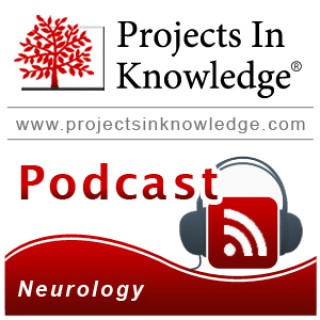Individualizing Target HbA1c Level
Follow Individualizing Target HbA1c LevelHemoglobin A1 (HbA1c) measurement is widely used in the management of type 2 diabetes mellitus (T2DM). However, expert consensus and professional guidelines conflict as to the correct use of this tool for diagnosis and therapeutic decision-making. In this podcast, Zachary Bloomgarden, MD, argues tha…
- Sep 30, 2010 LATEST EPISODE
- infrequent NEW EPISODES
- 4m AVG DURATION
- 5 EPISODES
More podcasts from Projects In Knowledge, Inc
Latest episodes from Individualizing Target HbA1c Level

Dr. Bloomgarden reviews recent trial data (ie, ACCORD, ADVANCE, VA diabetes trial), and examines different safety issues that must be taken into account in determining how intensive a glycemic intervention be considered.

Dr. Bloomgarden briefly synopsizes laboratory test variability with regard to measuring HbA1c levels.

In Part 3 of this podcast, the discussion surrounds the International Expert Committee's recommendations, which has been taken up by the American Diabetes Association, to suggest that 6.5 be used for the diagnosis of diabetes. Dr. Bloomgarden offers his thoughts on the relationship of blood sugar and HbA1c and how it is affected by age, ethnicity, anemia, and other factors.

Part 2. Does HbA1c Provide a True Average Glucose Measurement with a High Degree of Accuracy in an Individual Patient?
Dr. Bloomgarden focuses on the various factors influencing A1c, and explores the issues surrounding a

Part 1. Has HbA1c Lowering Been Incorrectly Interpreted in Current Guidelines?
Zachary Bloomgarden, MD, discusses hemoglobin A1c (HbA1c) lowering with various drugs. In a meta-analysis done, Dr. Bloomgarden and colleagues found that there was a strong relationship between baseline glycemia and the degree of fallen blood sugar. He also touches on the concerns that the ADA guidelines make recommendations that may be flawed.

















